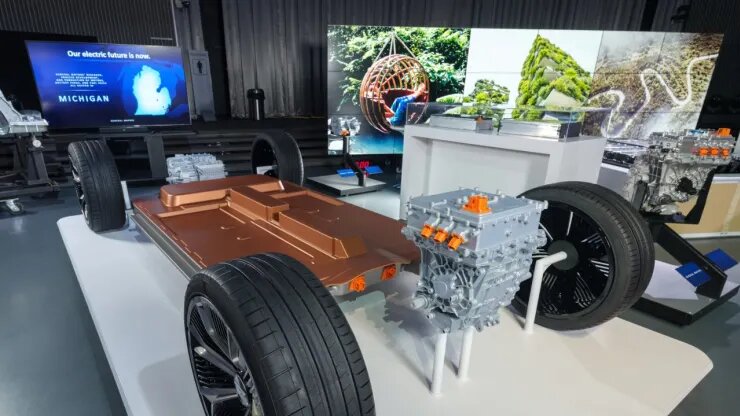In a significant development for the electric vehicle (EV) industry, General Motors’ Ultium Cells has forged an agreement with the United Auto Workers (UAW) union to enhance worker pay at its battery plant in Ohio. This strategic move holds paramount importance as GM aims to bolster its battery supply for its expanding fleet of electric vehicles. This partnership between Ultium and UAW stands as a milestone, marking the first major organized battery plant in the United States.
The Labor Talks and Union’s Quest for Equitable Wages
The discussions between UAW and Ultium revolved around nearly 1,100 workers at the Ohio battery plant. These talks were initiated after a majority of the employees aligned themselves with the union last year. The primary contention of the union was the equitable treatment of battery workers in terms of wages. UAW advocated that the wages for battery workers should align with those of their counterparts engaged in traditional tasks like engine and car assembly.
Currently, Ultium workers in production roles earn approximately $20 to $25 per hour, while maintenance employees receive wages ranging from $25 to $34.60 per hour. As a result of this agreement, these workers will witness wage increases of $3 to $4 per hour, significantly enhancing their compensation. However, it’s noteworthy that even with these increments, their compensation will still be below the hourly rates of traditional UAW assembly workers employed by Detroit automakers, who earn over $32 per hour.
The Deal: Addressing Pay but Not All Dynamics
The tentative agreement, which is pending ratification by the workers, is primarily focused on addressing wage concerns. While this is an essential aspect, it does not encompass the entirety of the dynamics and processes within the plant. The ratified agreement, if reached, will entail retroactive payment of back wages, ranging from $3,000 to $7,000.
Josh Ayers, Chairman of UAW Local 1112, shed light on the ongoing negotiations, stating that while this agreement centers on wages, the committee is dedicated to further discussions on matters such as working conditions, health and safety, seniority rights, and other issues highlighted by the workforce. The intent is to ensure a comprehensive and well-rounded agreement that caters to the diverse needs of the workers.
Distinct from National Negotiations: Ultium’s Unique Position
It is crucial to note that this specific agreement is distinct from the broader national negotiations transpiring between UAW and major automakers like GM, Ford Motor, and Stellantis. The national negotiations encompass approximately 150,000 workers and span multiple facets of the industry. Ultium’s Ohio plant, inaugurated in August, is the first of several battery facilities established through joint ventures with GM. While these plants are projected to employ numerous individuals in the forthcoming years, each automaker’s initiatives, such as Ford and Stellantis, warrant separate organization efforts under the purview of the UAW.
Looking Ahead: Ratification and Implications
Kareem Maine, Director of the Ultium Ohio plant, expressed his satisfaction with the interim agreement, affirming the priority placed on the valued workforce. This accord signifies a pivotal step as negotiations proceed towards a comprehensive contract, reinforcing collaborative engagement between Ultium and UAW. The next pivotal phase lies in the hands of UAW’s membership, as the ratification vote is set to conclude by August 27. Upon ratification, the enhanced wages will be implemented retroactively, granting active hourly employees back pay for their service since December 23. Notably, a one-time payment ranging from $3,000 to $7,000 awaits employees who have worked during this period.
Conclusion: Advancing EV Industry and Worker Welfare
The agreement between Ultium Cells and UAW stands as a testament to the symbiotic growth of the electric vehicle sector and the welfare of its workforce. As the industry accelerates towards electrification, ensuring equitable compensation for those powering this transformation remains paramount. The collaborative efforts exemplified in this agreement reflect a step forward in fostering a harmonious relationship between industry players and the skilled workers propelling the future of mobility.















